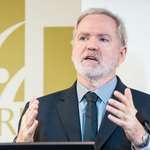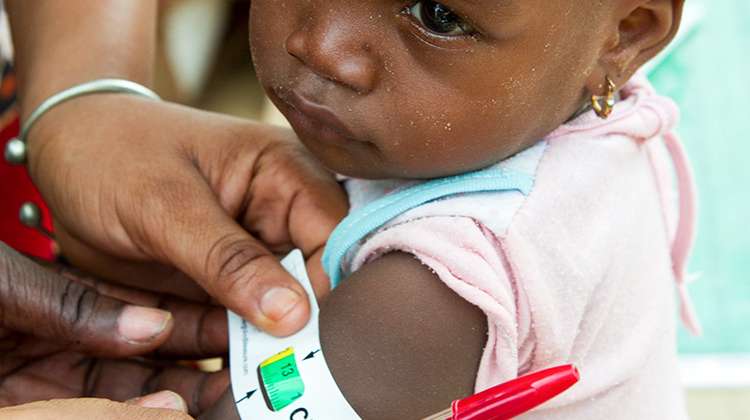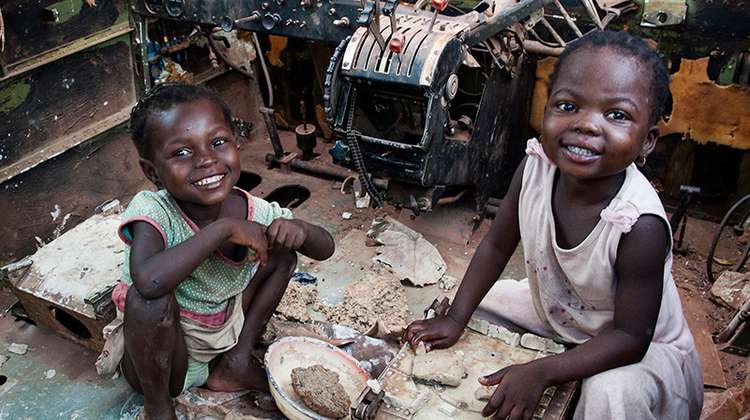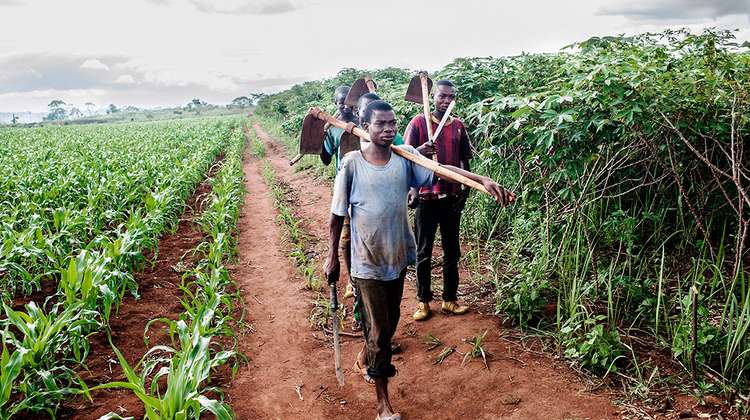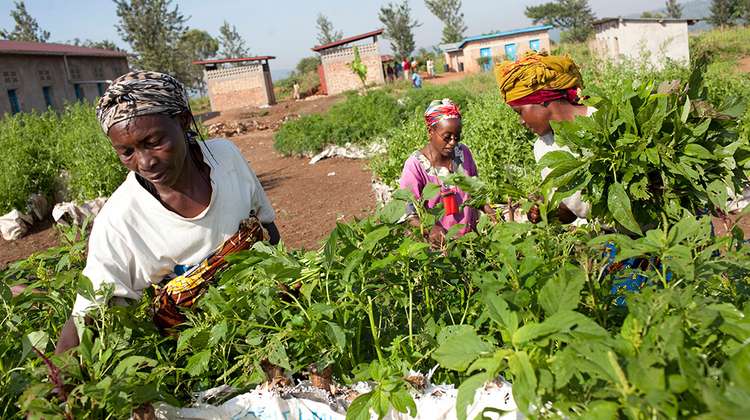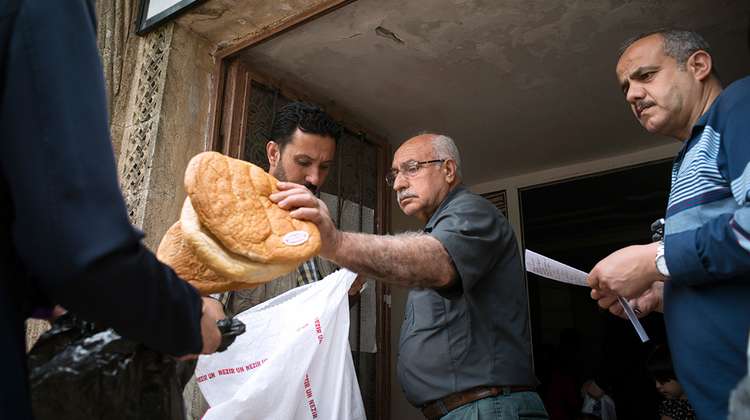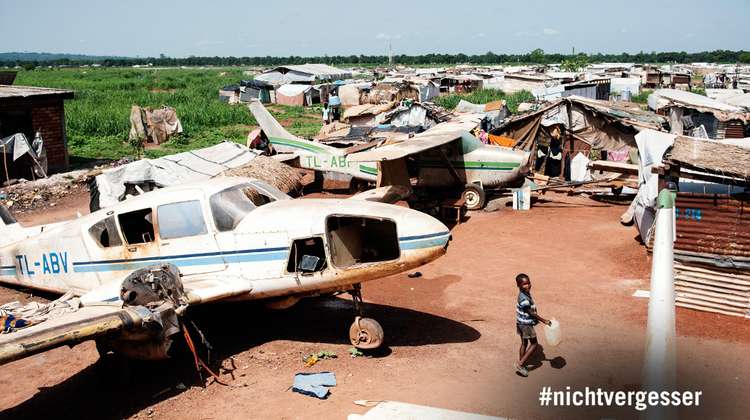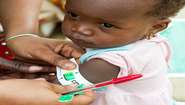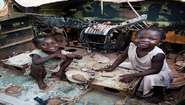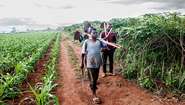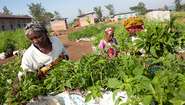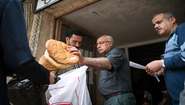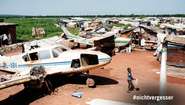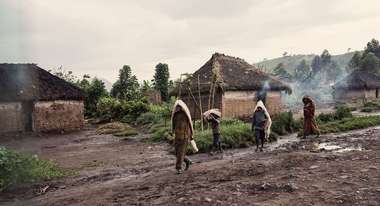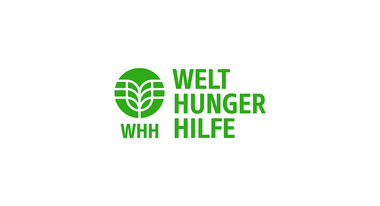How to Reach Zero Hunger in Fragile States
Connell Foley, Director of Strategy, Advocacy and Learning, Concern Worldwide, explains the challenges of reaching zero hunger in fragile states. Interview conducted by Fraser Patterson, Welthungerhilfe.
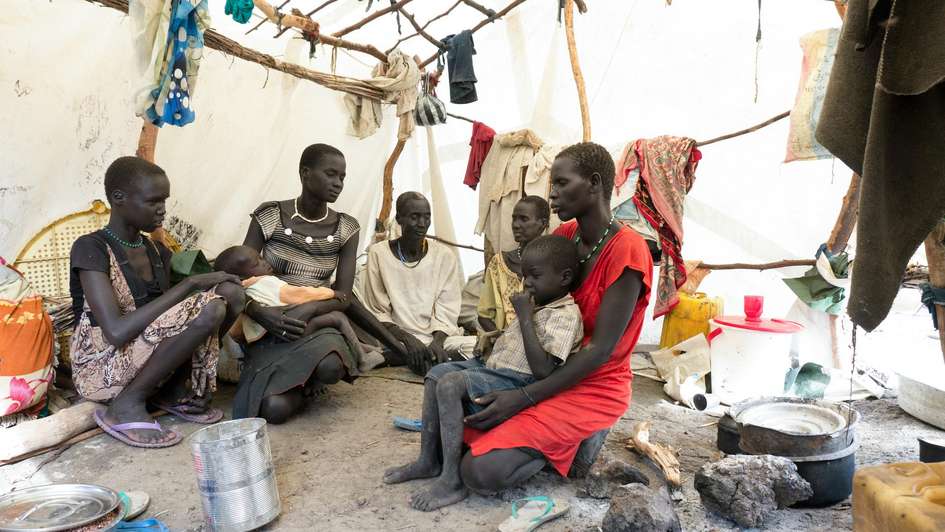
The United Nations Sustainable Development Goals aim to reach Zero Hunger in all countries by 2030, yet the results of the Global Hunger Index 2016 show that for some countries there is a long road ahead. Considering the current situation of hunger in the world, do you think it is possible to reach Zero Hunger in the next 14 years?
If we are talking about getting the level of undernutrition close to zero, then yes, I think that we can do it. If one starts to get technical around definitions of hunger, for example, if we focus on micronutrient deficiency within high calorie diets, then it is not so easy because unhealthy diets are becoming the norm with the urban poor globally. So I think that we should focus on undernourishment and certain key nutrient and micronutrient deficiencies in the next ten or fifteen years and recognise that beyond that we will be dealing with a different set of hunger-related challenges. What we need to ensure is that everyone in the world has equal access to the right foods while recognising that people living in poverty, wherever in the world, will always be susceptible to poor nutrition.
Do you think it is important to create such goals? What are the benefits?
Absolutely. We need goals and targets. We need facts and figures to get everyone on the same page and understand exactly what we want to achieve collectively. Everyone understands scoring. Every week in the football season, players, managers and supporters of a club look at their position and calculate how much they have to improve to reach their target position and then they make changes to try to do this. If we apply this to hunger, then of course, this is how we should be using these goals and targets. The Global Hunger Index and the Global Nutrition Reports are reflections of this intent.
The 2015 Global Hunger Index (GHI) highlighted a strong link between conflict and high levels of hunger. Can you give some examples of particular challenges that exist in fragile states with regards to fighting hunger?
The most extreme example at the moment is Syria where the populations of cities like Aleppo are cut off from essential supplies because parties to the conflict bomb and disrupt provision of all materials to parts of the city that come under the control of their perceived enemies. Conflict disrupts key infrastructure required for the safe delivery of food such as roads, granaries even down to bakeries in localised fighting.
It has long been established that food has been used as an instrument of war; the denial of access to food creates lack of support in populations for the conflict to continue and demoralises them.
Connell FoleyThese are the more direct effects. What Concern has seen in other places such as in South Sudan is that there are also multiple indirect effects which reduce food security, insidiously affecting the poorest most. These include high inflation rates and high food prices, increased difficulty to get remittances from those who have migrated, negotiating roadblocks, the demand from the army for people to feed their troops or else military theft of food from local people.
The SDGs speak of ‘leaving no one behind’, which is also the title of Concern’s Worldwide Strategy. Often those left behind are found in fragile states. What approaches are Concern applying particularly in fragile states to reach the most vulnerable?
Well, if we characterise fragile states as those beset by a wide range of factors such as protracted or repeated conflict, weak or authoritarian governance, environmental fragility, poor infrastructure and weak state capacity, then we are faced with multiple difficult challenges. We are talking about countries like Mali, Burkina Faso, Niger, Chad, Republic of Sudan, South Sudan, Eritrea, Democratic Republic of Congo, Afghanistan, Pakistan and Haiti. Indeed, Yemen, Syria, Central African Republic and Somalia are probably at the end of the spectrum closest to “failed states”. In bad years of drought, flooding or conflict, we have to provide humanitarian assistance to keep people alive. Stronger states can do this themselves but these are the contexts where even quite localised crises require support or intervention by international actors, NGOs like Welthungerhilfe and Concern.
In the years where emergencies do not occur, then we try to do effective long-term development work. This includes trying to build government capacity to deliver health, education or other social services, trying to build the very weak capacities of local institutions. Concern has also focused on building what we call “community resilience”, strengthening self-empowerment groups, helping poor people to analyse the big risks and coming up with ways to tackle them, to mitigate their impacts. This usually involves supporting these communities to build up their asset base, such things as increasing income, diversifying the livelihoods to reduce risk, improving their health so they can work more or do not get into debt due to health bills. We also help them to spot crises as early as possible so that they can act quickly to decrease the negative impacts.
Data regarding hunger in fragile states is often incomplete or missing. In these situations, how can we follow up on the progress of the SDGs and identify regions where assistance is most needed?
Given all that I have said about the weakness of state capacity, this is a real challenge. The key UN agencies support the government to try to collect the critical data. There is often more a focus on the national situation and not on regional disparities. In terms of food and nutrition security, international NGOs can support analysis of regional inequalities by documenting as much as they can in their areas of operation.
They then use it for advocacy to generate debates at parliament and national level around regional inequalities and where greater investment is required. While Concern has done this successfully in places like Bangladesh and Kenya, it is much harder to do at national level advocacy in fragile states. The international experts on resilience and development monitoring and evaluation have talked about getting the balance right in terms of in-depth data collection and analysis and getting consistent basic data collected and used, calling this a balance of “thick and thin” data. I think that this is a practical approach. We INGOs collect a lot of data that we do not use very much so it seems to me that there are efficiencies to be found.
What political changes would you like to see in the coming years at national and international level to contribute towards reaching zero hunger in fragile states?
Globally, we have made significant progress on hunger since 1990 but we need to accelerate the progress in places where it has been possible to get political buy in. In fragile states, we need to ensure that leadership continues across electoral cycles, neutralise party politics and continue to build delivery capacity of different ministries. In the states that are failing or extremely weak (fragile), then we need to change the game almost completely. We need to build up stronger community groups and social movements so that they can negotiate governmental safety nets as well as with the private sector to ensure continued access to food.
One critical problem is that of conflict and this remains one of the most difficult challenges facing humanity. We need a step change in political commitments to prevention and early resolution of major conflict, using mechanisms like The Elders and reviewing the veto power at the UN Security Council. Where extreme human rights abuses occur in civil wars, we have to find new processes that get around the shield of national sovereignty or at least balance national sovereignty with respect for international humanitarian law. There is no easy answer here but we need international leadership in this space.




